- Home
- Sharon Sala
Touchstone Page 24
Touchstone Read online
Page 24
“What is your name, ma’am?”
She frowned. “Marjorie Carl.”
Sullivan scanned the list. “Carl... Carl . . . oh yes, here you are. Three C.”
Her frown deepened. “What did you say your name was?”
“Sorry,” Sullivan said, and showed her his badge again. “Detective Danny Sullivan, ma’am. We’re here investigating a possible homicide.”
Her eyes widened as she clutched at the collar of her dress in sudden fright.
“Here? On these premises?”
Sullivan nodded. “Yes, ma’am. How long have you lived here?”
“Almost thirty years,” Marjorie said. “My husband, Aaron, and I moved here right after he went to work for the city. Aaron drove a bus, you know.”
“Yes, ma’am,” Sullivan said, making a few quick notes.
“But Aaron’s been dead for almost twenty years now.” Her pale eyes suddenly watered. “He had a heart attack. Died in his sleep.”
“I’m sorry for your loss,” Sullivan said, and wondered how Gianelli was making out. With people this old, the questioning often got sidetracked, as was happening now. But Sullivan also knew that with the older generation, either you let them tell things at their own speed or you got nothing at all. “So, have you noticed anything strange in the last few weeks? Any unusual noises? People fighting? Anything like that?”
Marjorie shook her head. “Oh no, Detective. Everyone on this floor gets along just fine. Why, I’d hardly know I had neighbors if I didn’t see them in the hall. Except for Margaret, of course. She’s my best friend. She lives across the hall from me. We’ve been going out to lunch once a week for the last twenty-odd years.”
Just as Sullivan started to interrupt, Marjorie shifted gears.
“At least she was my best friend, but now I’m not so sure.”
“What do you mean?” Sullivan asked, his interest aroused.
“Well, a few weeks ago, she up and moved to Florida without even saying goodbye. I know the last few winters have been terribly hard on her, but they’re hard on us all, don’t you know?”
Sullivan nodded. “So, have you heard from this lady—what’s her name again?”
“Margaret Andrews. She lives just across the hall from me, in three B.” Marjorie took out her handkerchief and dabbed at her tearing eyes. “No, I haven’t, and I must say it has hurt my feelings. The least she could have done was say goodbye, don’t you agree?”
“Yes, ma’am,” Sullivan said. “So, did she live alone?”
“Oh no. Her son, Beatty, lives with her.” Then she lowered her voice and moved a step closer. “He never married, you know. I always thought he was a little odd, but Margaret doted on him, so I never said a word, of course.”
“Of course,” Sullivan said, and made a couple more notes in his notebook. Then he looked down the hall. “Do you think her son is home now?”
She shrugged. “I doubt it,” she said. “He works as a doorman at one of those fancy apartment buildings. I forget the name, but it’s that place where that model lived. You know, the one that got bombed.” She frowned. “It’s frightening what this world has come to. In my day, things like this didn’t happen.”
“Yes, ma’am, you’re right. It is frightening.”
“So, is there anything else I can do for you, Officer?”
Sullivan glanced at his notebook. “No, ma’am, not right now. And thank you for your help.”
Marjorie smiled and fluffed her cotton-white hair. “You’re welcome. Now if you’ll excuse me, I want to get to the bakery before they sell all the potato bread. Today’s Tuesday. They always bake potato bread on Tuesdays.”
“Yes, ma’am. Have a good day,” Sullivan said, and then stood aside and watched as Marjorie got on the elevator and dropped out of sight. The moment she was gone, he headed down the hall to 3B. It was as Marjorie Carl had predicted. There was no one home.
He grabbed his two-way.
“Gianelli.”
A few seconds later the radio squawked. “Yeah. Got something?”
“Maybe,” Sullivan said. “How about you?”
“Nothing,” Gianelli said.
“I’m gonna make a couple of calls,” Sullivan said. “I’ll get right back to you.” Then he flipped a few pages back in his notebook, checking for a phone number as well as the name of the woman who worked the front desk at Rachel Austin’s apartment building. Frances, that was it. The muscles in his belly were jumping as he made the call. He didn’t yet know why or how, but something told him this was more than coincidence. When the familiar twang of Frances’s Brooklyn accent rang in his ear, he grinned, picturing her flyaway hair and belligerent frown.
“Frances, this is Detective Danny Sullivan. I talked to you the day after the bombing.”
“Yeah, I remember,” Frances said. “But I don’t know anything more than I already told you.”
“I’m not asking about that today. But I do need to know if Beatty Andrews is at work today.”
“Nah, he doesn’t work here anymore.”
Sullivan frowned. “Since when?”
“Since last week.”
“Was he fired?”
“No, sir. The owners just decided to upgrade the security. With the bombing and all, they’ve lost some longtime residents.”
“Yes, I can understand that,” Sullivan said. “Do you know if he has another job?”
“I wouldn’t know. Him and me wasn’t the best of friends.”
“Why?”
Frances snorted in Sullivan’s ear. “Because he was weird, that’s why. And because he was such a mama’s boy. He’s almost forty, you know, and still living with his mother.”
“Okay, Frances. Thanks for the information.”
“Anytime.” And then she added, “Hey, Detective.”
“Yes?” Sullivan asked.
“You married?”
Sullivan grinned. “Yes.”
“Too bad,” Frances said. “If I remember right, you’re kind of cute.”
Sullivan’s grin widened. “I’ll tell my wife you said so.”
He hung up with the woman’s giggle ringing in his ears, then grabbed his two-way.
“Gianelli, meet me at the super’s office. There’s an apartment I think we should check out, and no one’s at home. So I’m thinking I smell a gas leak, if you know what I mean.”
“Be right there,” Gianelli said. Sullivan clicked off and headed for the elevator.
Seventeen
“I don’t smell anything,” Charlie said as he stood outside the door to Margaret Andrews’s apartment.
“Right now I don’t either,” Sullivan said. “But I sure thought I smelled gas earlier.”
Charlie hesitated, the passkey dangling from his hands.
“When was the last time you saw Mrs. Andrews or her son, Beatty?” Sullivan asked.
Charlie frowned. “Now that you mention it, I haven’t seen Margaret in several weeks. But I saw Beatty a few days ago. He spoke to me on his way out the door.”
“And you haven’t seen him since?”
Charlie’s frown deepened. “Not that I remember.”
Sullivan shrugged. “I don’t have a search warrant, so this is your call. If you want to take the chance on finding another body a few days later, then it’s up to you.”
Charlie turned visibly green and thrust the key in the lock. A few moments later the door swung open.
“Beatty! Beatty Andrews!” Charlie called. “It’s me, Charlie. I need to check for a gas leak.”
No one answered. Charlie shrugged. “Now that I’m here, I suppose I should go ahead and check.”
“Mind if we tag along?” Sullivan asked.
“I guess it would be all right,” Charlie said.
The trio entered the apartment. Charlie went straight to the kitchen, with Sullivan and Gianelli dawdling a few steps behind. On the surface, everything seemed normal. The furniture was old but well kept, a style Sullivan remembered seeing in h
is grandmother’s house.
Gianelli swiped at a thin layer of dust on an end table, then looked at Sullivan.
“So they don’t keep a clean house. It’s not a crime,” Sullivan muttered.
Charlie came back through the room. “The kitchen is fine,” he said. “I’d better check the bedrooms and the bath before I go, just to make sure.”
“Good idea,” Sullivan said. “Say, Charlie, I just saw Marjorie Carl in the hallway a bit earlier. She said that Mrs. Andrews moved to Florida a few weeks ago. Know anything about that?”
Charlie was halfway down the hallway. He turned, a look of surprise on his face. “Not a thing!” Then he added, “Of course, as long as the rent is paid on time, the residents don’t owe me an explanation of their personal lives.”
Sullivan nodded and followed Charlie as he resumed his trek toward the bathroom at the end of the hall.
“Okay in here,” Charlie said, then closed the door and retraced his steps to the door on his right. He opened it up, leaning inside to reach for the light. Gianelli was right behind him. He saw the computer first. Then the stack of survivalist magazines. Then the batteries. At least a dozen. He nodded at Sullivan, indicating interest.
Sullivan stepped inside. When he saw a bit of blue lying on top of the magazines, he took a step closer. He was no bomb expert, but he’d been around enough to recognize Flex X when he saw it. His pulse rocketed.
“So, Charlie, what do you know about this Beatty Andrews?” Sullivan asked.
Charlie shrugged. “Only that he’s a loner. But they always pay their rent on time.”
“He got any friends, like a girlfriend, maybe, or a drinking buddy or two?”
Charlie grinned. “People like Beatty don’t have girlfriends.”
Gianelli’s eyebrows arched. “Are you saying he’s gay?”
“No. At least, I don’t think so. What I meant was, he’s such a mama’s boy he wouldn’t have been allowed to have a girlfriend.”
Sullivan’s eyes narrowed thoughtfully as Charlie preceded them out of the room.
“One more room and then we’re outa here,” Charlie said. “I don’t like to pry. That’s why I’ve had my job for so long. ’Cause I respect other people’s privacy.”
“That’s an admirable trait,” Sullivan said.
“This would be Mrs. Andrews’s room,” Charlie said. “I remember because about five years ago we had to replace the ceiling. One of the pipes burst in an apartment a couple of floors up. Caused a big mess.”
Then he opened the door.
“Jesus and Mary,” he whispered, and made the sign of the cross as his face turned a ghostly pale.
“What?” Sullivan asked.
“Jesus,” Charlie said again, and started to cry. “Jesus.”
Sullivan looked past Charlie into the room beyond. “Oh man,” he muttered. “Gianelli, get a look at this.”
They walked inside, trying to absorb the mindset of a man who could create and then destroy such a place. The walls were a shocking red, the color screaming out to be noticed. The jagged white gashes in the red surfaces made it look as if the room had bled itself dry. The bed, an elegant four-poster, had been all but destroyed. The white lace coverlet was in shreds, as were the linens and the mattress.
“Look out,” Gianelli said, pointing to an object on the floor near Sullivan’s shoe. “Don’t step on that.”
Sullivan looked down. “It’s a knife.” Then he squatted to look closer. “No, it’s a letter opener, I think.”
“Take a look at this,” Gianelli said, pointing to the vandalized pictures that had been hanging on the walls. “Doesn’t she look familiar?”
Sullivan stood and walked closer. As he did, the hair on the back of his neck suddenly rose.
“Shit. That’s Rachel Austin.”
Gianelli’s eyebrows arched. “And that was explosive in the other room, wasn’t it?”
Sullivan nodded.
Gianelli started to grin. “Didn’t you tell me that Beatty Andrews worked as a doorman at the apartment building where Rachel Austin was living?”
Sullivan nodded again.
“Could we be this lucky?” Gianelli asked.
Sullivan wouldn’t jinx it by answering. He looked back at Charlie, who was turning paler by the moment.
“I assume that Mrs. Andrews’s room didn’t look like this five years ago,” he said.
All Charlie could do was shake his head.
“Gianelli, check the closets. See if any of Mrs. Andrews’s clothes are inside.”
“But if she moved to Florida, she wouldn’t leave them behind,” Charlie said.
“That’s true,” Sullivan said. “If she moved.”
Charlie’s eyes widened. He was starting to put two and two together. Suddenly it clicked.
The body in the trunk.
Margaret Andrews.
The body in the trunk.
The woman with no face.
The body in the trunk.
The flies.
The maggots.
He bolted down the hall, barely making it to the bathroom in time.
At the same moment a wave of sympathetic nausea sent Sullivan fishing in his pocket for the little jar of Vicks. All he needed was a sniff, something to take his mind off the memory of the way the basement had smelled.
“The closets are empty. Even the drawers are empty,” Gianelli said.
Sullivan stood in the middle of the room, staring.
“Gianelli, call the captain. Tell him what we’ve found. I want a warrant issued for the arrest of Beatty Andrews. Tell him we also need a search warrant for this address. Then tell him to send the boys from the bomb squad over here, as well as forensics. There’s a real good chance we just made a double play. If I’m right, looks like mama’s boy had to make a choice between his women. Mama lost out, and from the looks of this room, he’s pretty pissed at Miss Austin as well.”
“Do you think Miss Austin knew him . . . I mean, knew him well?” Gianelli asked.
Sullivan shrugged. “We’ll have to find out, now, won’t we?”
Without opening his eyes, Houston could tell by the feel of the air that it was almost dawn. For as long as he could remember, he had been able to do that. Once his father had challenged him, saying that Houston was just full of imagination. But Houston had held fast to his truth, telling his dad that it was easy. All you had to do was take a good breath. The air was thicker at night and thinner by day. His dad had laughed, but Houston knew what he knew. So this morning he took a slow, deep breath. If he was guessing, he’d say five o’clock.
He opened his eyes. It was a quarter to five. He grinned and rolled out of bed, grabbing his jeans as he went. After a quick trip to the bathroom to wash the sleep from his eyes, he headed for the kitchen to make coffee, then hesitated just outside Rachel’s door. Afraid he would wake her if he looked in, he started to move on.
Then he heard her cry out. Moments later he was at her bedside. Her features were contorted, as if she was in pain, and she’d been crying. Tears were drying on her face. The bedcovers had tangled around her waist, and there was a pillow lying across her right leg. He could only imagine what she’d been dreaming.
“Rachel, baby, wake up,” he said softly. “You’re having a bad dream.”
Rachel gasped as his voice yanked her out of the nightmare. In a panic, she kicked the pillow from her leg before tearing at the covers wrapped around her.
“Easy, Cherokee. Let me help,” Houston said, and peeled her out of the tangles.
As soon as her arms were free, she was on her knees and trying to crawl out of the bed. Houston caught her before she fell, then pulled her into his lap.
“Honey, easy. It’s me, Houston.”
Suddenly she went limp.
“Houston? Is it really you?”
He sighed. “Yes, baby, it’s really me.”
She started to cry, soft, quiet tears that ripped through his heart like razors.
�
�I was dreaming,” she sobbed. “It was just like before.”
“What are you talking about?” Houston asked.
“The explosion. When I came to, I thought I was in Texas. I kept wondering why you didn’t come and help me. In the worst times of my life, you were always there for me. But this time you didn’t come. I didn’t understand why.”
Her words were killing him by degrees, and all he could do was hold her.
She shuddered. “Then I remembered. You couldn’t help me because you didn’t know where I was.” Her tears were falling faster now, her hands clutching at his bare arms, then at the sides of his face. “I am so sorry,” she sobbed. “I must have been crazy to do what I did to you.”
Houston’s mind was racing. This was what he’d been longing to hear, but did it come from her heart—or from fear? God knew how badly he wanted this to happen, but not like this. Never like this. It took everything he had not to lay her down on the bed and make love to her then. She would have let him. But where would they be when it was over?
He wrapped his arms around her and rocked her where she sat, soothing her with his voice as much as his touch.
“Rachel, listen to me.”
She stilled.
“We’re already past that day. What matters is now. Tomorrow. Even next month and next year. I don’t dwell on yesterdays, and neither should you.”
She turned her face up to him then, and, just for a moment, Houston could have sworn she was looking into his soul. But it was a trick of the early-morning light, because the next moment she blinked and he felt himself staring into the void that had become her gaze. Then, with more grace than he would have believed her capable of, she got out of his lap and off the bed, smoothing her nightgown and hair as if she were about to receive visitors.
“Rachel, are you okay?”
She turned, and again he felt as though her gaze pierced his soul.
“You don’t dwell on yesterdays?” she asked.
“No.”
“That’s too bad,” Rachel said. “Because I won’t give them up. You are part of my yesterdays, and they are all I can see.”
Then she walked out of the bedroom, stretching one arm out before her and the other out to her side as a guide, leaving Houston alone in her bed.

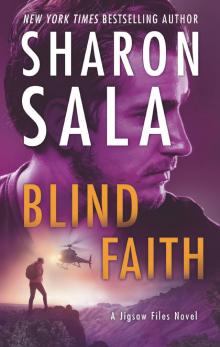 Blind Faith
Blind Faith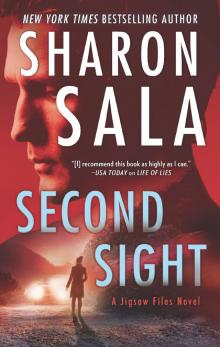 Second Sight
Second Sight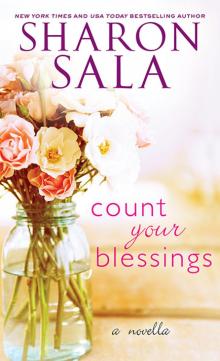 Count Your Blessings
Count Your Blessings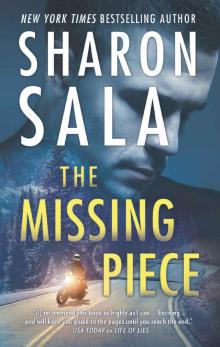 The Missing Piece (The Jigsaw Files)
The Missing Piece (The Jigsaw Files)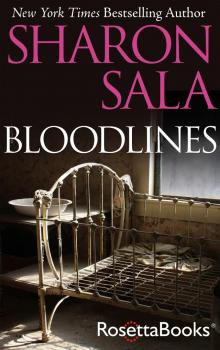 Bloodlines
Bloodlines Sudden Danger
Sudden Danger King's Ransom
King's Ransom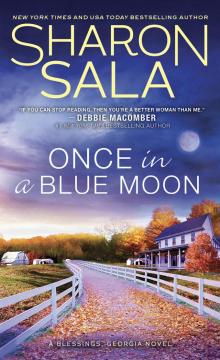 Once in a Blue Moon
Once in a Blue Moon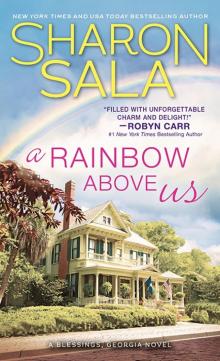 A Rainbow Above Us
A Rainbow Above Us Always a Lady
Always a Lady Touchstone
Touchstone The Whippoorwill Trilogy
The Whippoorwill Trilogy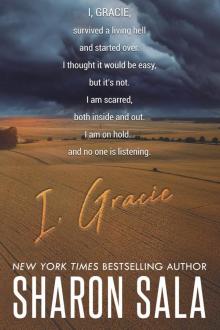 I, Gracie
I, Gracie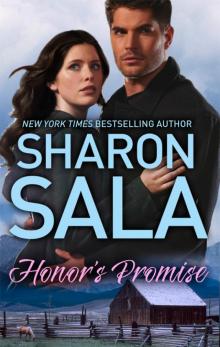 Honor's Promise
Honor's Promise Rider on Fire
Rider on Fire The Gathering
The Gathering Don't Cry for Me
Don't Cry for Me The Way Back to You
The Way Back to You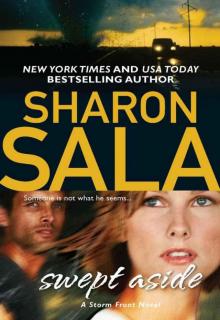 Swept Aside
Swept Aside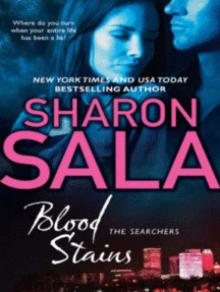 Blood Stains
Blood Stains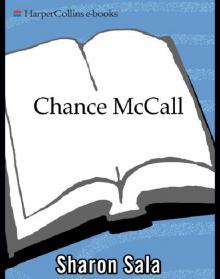 Chance McCall
Chance McCall Out of the Dark
Out of the Dark For Her Eyes Only
For Her Eyes Only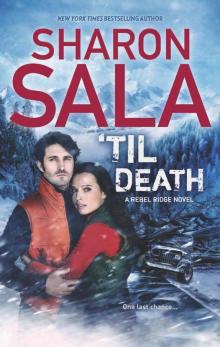 'Til Death (A Rebel Ridge Novel)
'Til Death (A Rebel Ridge Novel)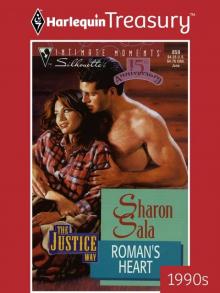 Roman's Heart
Roman's Heart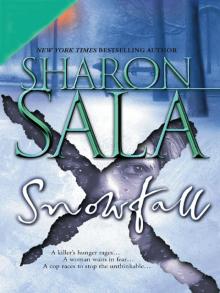 Snowfall
Snowfall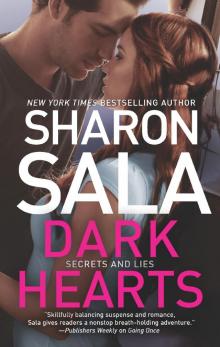 Dark Hearts
Dark Hearts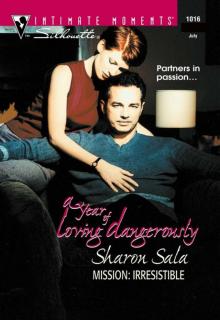 Mission: Irresistible
Mission: Irresistible A Place to Call Home
A Place to Call Home Betrayed
Betrayed The Lunatic Detective
The Lunatic Detective The Dove
The Dove Windwalker
Windwalker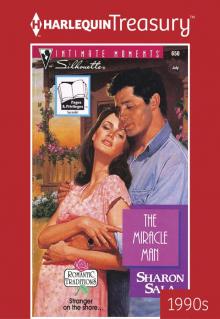 The Miracle Man
The Miracle Man The Curl Up and Dye
The Curl Up and Dye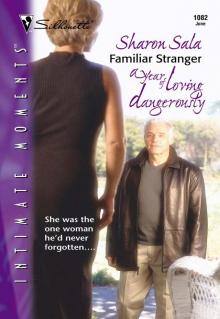 Familiar Stranger
Familiar Stranger Sweet Baby
Sweet Baby The Boarding House
The Boarding House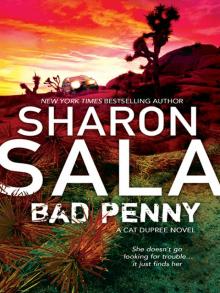 Bad Penny
Bad Penny Remember Me
Remember Me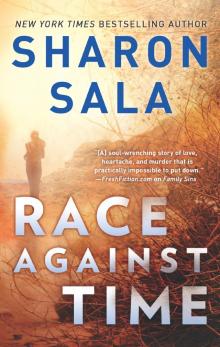 Race Against Time
Race Against Time The Dove (Prophecy Series)
The Dove (Prophecy Series)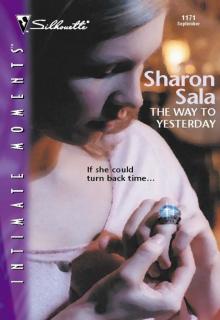 The Way to Yesterday
The Way to Yesterday The Healer
The Healer The Color of Love
The Color of Love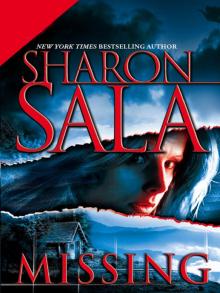 Missing
Missing Next of Kin
Next of Kin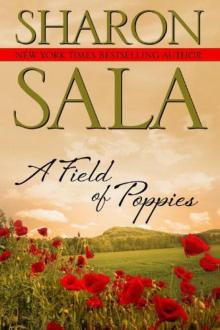 A Field of Poppies
A Field of Poppies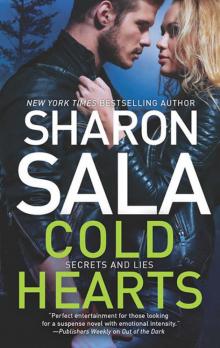 Cold Hearts
Cold Hearts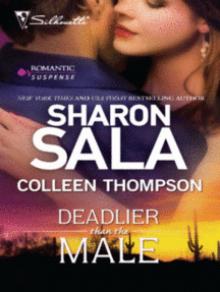 Deadlier than the Male
Deadlier than the Male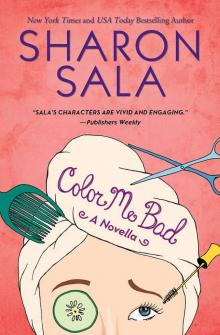 Color Me Bad: A Novella
Color Me Bad: A Novella Lunatic Times Two: 4 (The Lunatic Life Series)
Lunatic Times Two: 4 (The Lunatic Life Series)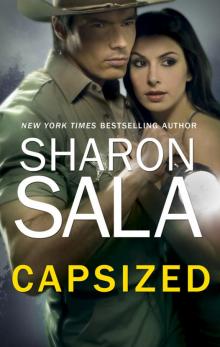 Capsized
Capsized Sympathy Pains
Sympathy Pains ROYAL'S CHILD
ROYAL'S CHILD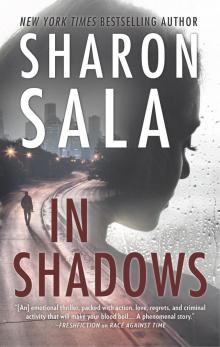 In Shadows
In Shadows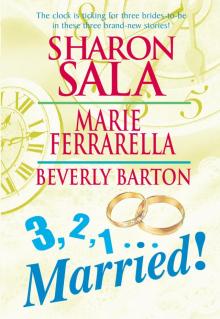 3, 2, 1...Married!
3, 2, 1...Married! Family Sins
Family Sins The Chosen
The Chosen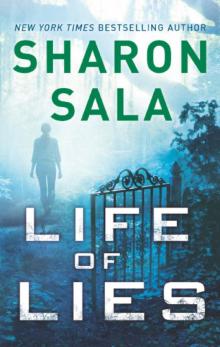 Life of Lies
Life of Lies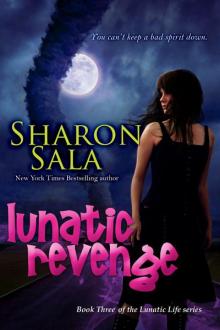 Lunatic Revenge
Lunatic Revenge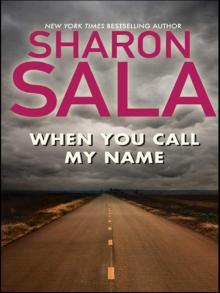 When You Call My Name
When You Call My Name I'll Stand By You
I'll Stand By You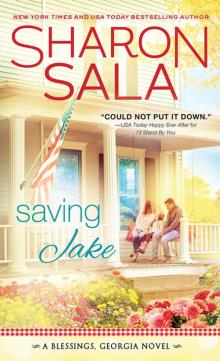 Saving Jake
Saving Jake Going Gone
Going Gone ANNIE AND THE OUTLAW
ANNIE AND THE OUTLAW Butterfly
Butterfly Cut Throat
Cut Throat Ryder's Wife
Ryder's Wife The Hen House
The Hen House Amber by Night
Amber by Night The Amen Trail
The Amen Trail Mimosa Grove
Mimosa Grove Dark Water
Dark Water Wild Hearts
Wild Hearts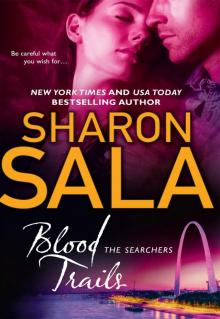 Blood Trails
Blood Trails The Warrior
The Warrior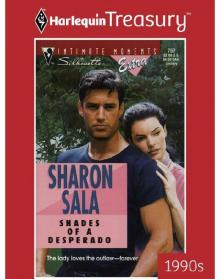 Shades of a Desperado
Shades of a Desperado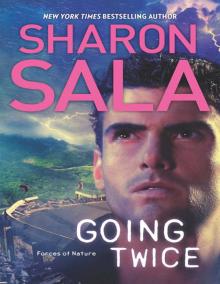 Going Twice
Going Twice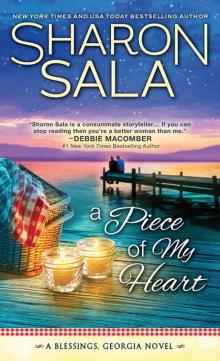 A Piece of My Heart
A Piece of My Heart You and Only You
You and Only You Nine Lives
Nine Lives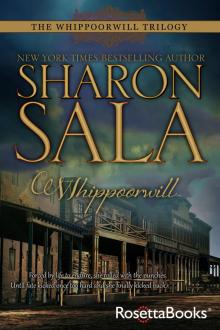 Whippoorwill
Whippoorwill